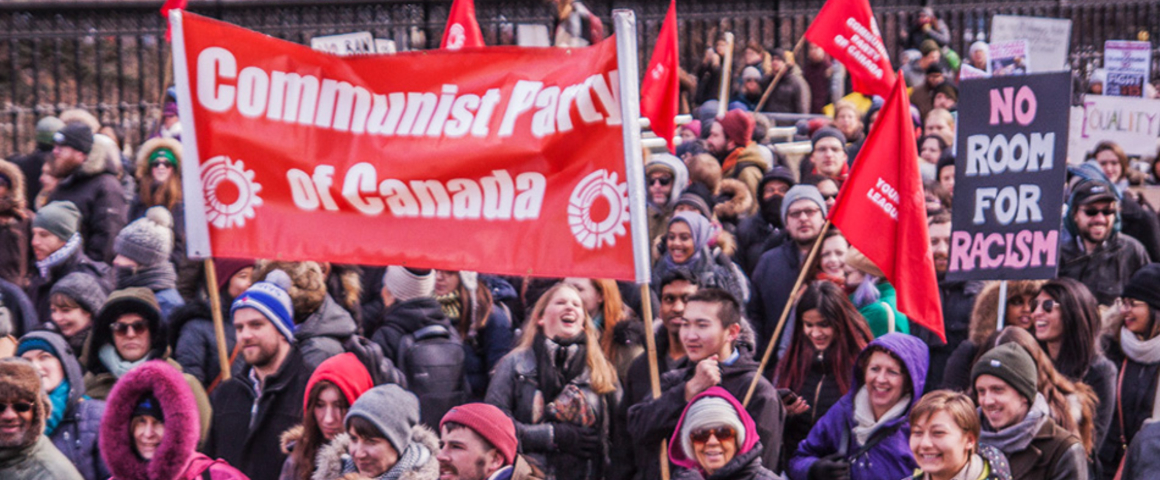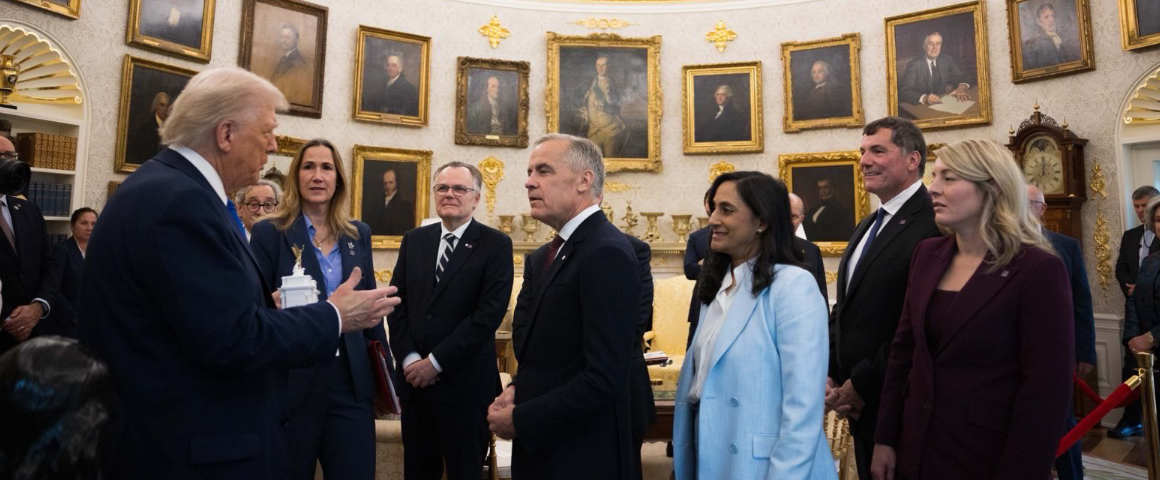By Kimball Cariou
In the pages of People’s Voice and other left media outlets, an ongoing debate flourishes about how to achieve fundamental change. This isn’t an academic dispute about future paths to power, and this author makes no claim to have the answers. What I do want to argue is that we must keep our focus on the prize – building up forces and movements with the capacity to carry out socialist revolutions, rather than contemplating a multi-level chessboard of contending geopolitical players.
From this perspective, the contemporary debate over concepts such as multi-polarity and the role of the BRICS+ grouping is important for purposes of analysis, and sometimes critical at particular moments, but not primary to the goal of communists.
There are frequent suggestions today that multi-polarity, BRICS+ or de-dollarization of currencies should be seen as “positive steps towards socialism.” As one PV article stated recently, “BRICS+ is a coalition with a concrete class character rooted in the global South, and often in opposition to the interests of the imperialist North.”
Some polemics project BRICS+ as the material base for a shift towards socialism, although this article says that “it may be true that most BRICS+ nations are capitalist.” (No. Considering that the latest additions are all capitalist countries – Egypt, Iran, Ethiopia and the United Arab Emirates, with Saudi Arabia to follow – this is an undeniable fact rather than a “maybe.”) But this phrase is revealing in the context of the article’s non-Marxist characterization of BRICS+ as a “coalition with a concrete class character.”
What “class character” could possibly include both the ruling working class of socialist Cuba and the reactionary big business sections of Modi’s Hindutva government in India? Lenin defined classes, not on the basis of geographical location, but as “large groups of people differing from each other by the place they occupy in a historically determined system of social production, by their relation … to the means of production, by their role in the social organization of labor, and, consequently, by the dimensions of the share of social wealth of which they dispose and the mode of acquiring it.”
My understanding of the issue is quite different. The emergence of rising powers and changing economic relationships is not a new phenomenon requiring a redefinition of imperialism. Such shifts have been a constant of international economic affairs for centuries, going back to pre-capitalist times. New factors make it possible to accelerate such changes, such as the internet, the development of asymmetrical forms of warfare, the rising or falling value of particular resources, etc.
In itself, “multi-polarity” can be understood as a historical moment during which older dominant powers face new challengers. Between the mid-1400s to around 1800, England, France, the Netherlands, Portugal and Spain built empires in the Americas, Africa, India and the East Indies. In contrast, Russia, Italy, Germany, the US and Japan became imperial powers in the period from the mid-1800s to 1914 – the “multi-polarity” moment when rivalries erupted into a deadly imperialist war.
Historical parallels can be overstated, leading to incorrect conclusions. There is no evidence that a relatively even balance of forces among rival powers will remain in equilibrium for any lengthy period. On the other hand, inter-imperialist wars can and sometimes have created conditions more favourable for revolutionaries to break the chains of colonial and capitalist domination.
The mistake by some enthusiasts for multi-polarity is the tendency to imply that such breakthroughs will somehow arise automatically from certain circumstances. This misses Lenin’s point, that the conditions for a revolutionary situation include: the inability of the ruling classes to continue ruling in the old manner; the more acute suffering and want of the oppressed classes; and as a consequence, a considerable increase in the activity of the masses, “who uncomplainingly allow themselves to be robbed in ‘peace time’.”
This third element is at the crux of the debate, in my opinion. It is insufficient for communists and other revolutionaries to dissect the contradictions among global powers and economic alliances, attempting to assure the working class that the emperor has no clothes – that the imperialist hegemon faces isolation and defeat by its rivals. This may indeed be true at a moment when the US teeters toward politicized domestic violence, its economy lagging the growth of China, and its grip on global affairs weakening. For socialist Cuba, and for other countries struggling under US embargoes and blockades, this is good news.
But look at history, which offers many examples. The Haitian anti-slavery revolution led by Toussaint L’Ouverture was an outstanding blow against French imperialist power, but not a guarantee of the emancipation of the working class. Today, a continued decline in US power is not identical to a world victory for socialism – or even necessarily the precursor for truly fundamental class change.
Such change requires a massive renewal of revolutionary working-class ideology. Objectively speaking, the international working class already possesses the capacity to overthrow capitalism. The International Labour Organization reports that the percentage of pure wage dependents (“employees”) rose between 1991 and 2019 from 44 to 53 percent in the capitalist countries, and that wage earners represent around 90 percent of total employment in the highly developed economies. What is lacking in most countries is the subjective factor – a significant rise in class consciousness, as reflected by powerful communist parties and militant trade union movements.
These are the forces required to move from a defensive posture to the offensive, to forge unity around broad alliances to reverse militarism and climate change, to block the rise of so-called “populist” versions of fascism, to rapidly narrow the huge gap between rich and poor. The serious threats to human survival require radical measures on a global scale, within a historically narrow time frame.
This is the true context for today’s debates around strategy and tactics: faced with the complication of unparalleled climate chaos and a temporarily unfavourable balance of class forces, how can we grapple with the immediate dangers, buying time to strengthen the revolutionary forces with the capacity to achieve a socialist future. In concrete terms, it helps to undermine the dominance of the world’s biggest imperialist power, which time and again exercises the levers of economic, military, political, cultural and diplomatic powers to block attempts to win people’s power or to build socialism.
Of course, other imperialist powers and even relatively smaller capitalist countries share the US imperative to protect the private profit system as a whole. But since the end of WW2, and especially after the overthrow of the European socialist states, the United States has been the number one capitalist superpower, the global cowboy. Any successful revolutions aimed at winning working-class political power must overcome the resistance of the US, or at least take advantage of an isolated and weakened America. But this must be the conscious act of revolutionary-minded working-class movements, not the spontaneous outcome of ruling class weaknesses and divisions.
That challenge faces major obstacles, in particular the relative weakening of many (though not all) communist and revolutionary parties since the early 1990s. It’s true that the deepening crisis of imperialism has grown more apparent since the near collapse of 2007-08, and the system appears to be living on borrowed time. Forecasts are not for the faint of heart, since capitalism has overcome steep losses in the past. The private profit system faces growing skepticism from working people. However, this has not so far resulted in a global resurgence of support for the communist parties, and in fact, fascist parties have also made gains. Most frightening, scientists warn that the time left to halt and reverse environmental catastrophe is running out, possibly measured in years, not decades or centuries.
Given this daunting situation, it would be wrong to criticise countries and movements suffering under the domination of US imperialism for seeking immediate relief. “Give me a place to stand, and a lever long enough, and I will move the world,” as Archimedes reportedly stated. Why shouldn’t Cuba turn to the BRICS+ grouping in its search for partners against the illegal US blockade, which imposes a devastating lack of consumer goods and medical supplies on the only socialist country in the western hemisphere. As more countries ignore the US blockade, or use currencies other than the Yankee greenback, Cuba will find it easier to trade freely with other partners.
The same concept applies to a wide range of countries, regardless of political and economic structures. In its self-appointed role as global cop, the US faces a plethora of critics and opponents, and a growing movement to de-dollarize the global economy.
However, this will not magically create a red brick path to a 21st century global socialism. It requires little imagination to realize, for example, that an Iranian leadership which overcomes economic crisis through a wider range of economic and political partners will use its strength to crush working-class dissent.
This is not an argument against removal of US sanctions, which have devastating consequences for working people in Iran and many other countries. But it serves as a cautionary note. To paraphrase a recent PV commentary by India’s Prabhat Patnaik, this process may weaken, at least to some extent, the monopoly stranglehold of imperialist institutions on the world economy, creating a more favourable setting for the working people of the world to strike a blow against imperialism.
We, however, must strike that blow. Whatever their differences with Washington, the ruling classes of the BRICS+ countries will not do it for us.
The author is a long-time member of the Central Executive Committee of the Communist Party of Canada and is the Party’s leader in British Columbia.
Support working-class media!
If you found this article useful, please consider donating to People’s Voice or purchasing a subscription so that you get every issue of Canada’s leading socialist publication delivered to your door or inbox!
For over 100 years, we have been 100% reader-supported, with no corporate or government funding.




